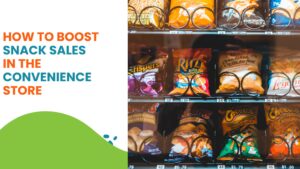Today, “food waste” is a big problem worldwide. It means throwing away good food at different stages like when it’s made, delivered, or even in our kitchens and restaurants. This is a big deal because it’s both unfair to waste food while many people don’t have enough to eat, and it’s bad for the environment because it wastes the resources used to make the food.
When we cook, using ingredients is very important to make delicious meals. But throwing away excess food is a big issue. That’s where Food Wholesalers come in. They are like the secret helpers. They connect chefs with the ingredients they need and help fight against food waste.
In this blog, we’ll talk about 7 ways food wholesalers help chefs reduce food waste. These distributors aren’t just suppliers; they are partners in making cooking more sustainable and responsible. So, let’s see how they work together to stop food waste in the cooking world.
1. Efficient Inventory Management

Wholesale food distributors are essential allies for chefs seeking to optimize their inventory. These distributors offer a wealth of benefits that streamline the inventory management process. By providing a diverse range of products in one place, they simplify the ordering process for chefs. This one-stop-shop approach reduces the need for chefs to engage with multiple suppliers, saving time and effort.
One of the key advantages of working with wholesale food distributors is access to real-time inventory tracking systems. This technology allows chefs to monitor stock levels, track ingredient usage, and predict demand accurately. Real-time inventory tracking helps prevent overstocking or understocking, ensuring that chefs have the right ingredients on hand when needed. This not only reduces food waste but also contributes to cost savings and improved operational efficiency.
2. Seasonal and Local Sourcing
Seasonal and local sourcing are powerful tools that wholesale food distributors use to assist chefs in reducing food waste. When distributors prioritize sourcing ingredients that are in-season and locally grown, they support a more sustainable and efficient food supply chain. Seasonal produce is at its peak freshness and flavour, reducing the chances of it going to waste due to spoilage. Moreover, local sourcing means that the food does not need to travel long distances, reducing the environmental impact associated with transportation and preserving the food’s quality. By providing chefs with seasonal and local ingredients, wholesale food distributors enable them to create menus that align with what’s readily available, minimizing the need for excessive food storage and ultimately reducing food waste in the culinary industry.
3. Collaborative Menu Planning:

Collaborative Menu Planning means that food distributors and chefs team up to make menus that use ingredients wisely. Here’s how it works:
- Working Together: The distributors and chefs talk to each other and plan the restaurant’s menu as a team.
- Smart Ingredient Use: They choose dishes that use ingredients in the best way possible, so nothing goes to waste.
- Using Everything: By doing this, they make sure that all the ingredients they buy get used in the dishes on the menu.
So, it’s like a group effort to make sure that the food they purchase is used effectively and doesn’t end up being thrown away.
4. Supply Chain Efficiency
By streamlining the supply chain, distributors help reduce the time between food production and delivery, keeping ingredients fresher for longer. Here’s how it works:
- Streamlining the Supply Chain: This means making the whole system work better and faster. Distributors work on improving how food moves from farms and factories to the restaurants and kitchens where chefs use it.
- Fresher Ingredients: When the supply chain is efficient, food spends less time traveling and waiting around. That means the ingredients arrive at the kitchen while they are still very fresh.
- Reducing Waste: Fresh ingredients last longer and are less likely to go bad quickly. So, by getting food to the kitchen faster, distributors help chefs reduce waste because they can use the ingredients before they spoil.
So, Supply Chain Efficiency is like making sure the food gets to the chefs quickly and in good shape so that they can use it all before it goes bad. This helps reduce food waste in restaurants and kitchens.
5. Food Donations and Charities

One of the ways to tackle food waste is through donations and food recovery programs. Instead of throwing away perfectly good food, these initiatives redirect it to those in need. This not only reduces food waste but also helps alleviate hunger and food insecurity in communities.
Wholesale food distributors play a crucial role in supporting these initiatives. They often partner with local charities and food banks to donate surplus or unsellable but still edible food. These distributors have the infrastructure and logistics to efficiently handle food recovery efforts, ensuring that excess food gets to those who need it most.
6. Education and Training
Educating chefs on food waste reduction is crucial for several reasons. Firstly, it raises awareness about the environmental and social impacts of food waste, motivating chefs to take action. Secondly, it equips them with practical knowledge and strategies to minimize waste in their kitchens. Ultimately, education empowers chefs to make informed decisions that benefit both their businesses and the planet.
Wholesale food distributors recognize the importance of education and often provide training and resources to chefs. They offer workshops, webinars, and informational materials that cover topics like sustainable sourcing, proper storage, and efficient kitchen practices. By partnering with these distributors, chefs gain access to valuable insights and tools that support their efforts to reduce food waste.
Read More: How Food Wholesalers Help Reduce Food Waste
Conclusion:
In the food world, where creativity knows no bounds, the battle against food waste is not just a moral imperative but a pathway to innovation and sustainability. As we’ve explored the seven ways in which wholesale food distributors support chefs in reducing food waste, it’s clear that this partnership is a force to be reckoned with. From efficient inventory management to embracing seasonal and local sourcing, chefs and wholesale food distributors are coming together to create a brighter, more sustainable future for the food industry.
But our journey doesn’t end here; it’s just the beginning. If you’re a chef or a culinary professional, consider partnering with wholesale food distributors to implement these strategies in your kitchen. Make sustainability part of your culinary ethos and inspire others to follow suit. Share your success stories and the positive impact on your business and the environment.
Together, we can turn the tide against food waste, one plate at a time. Let’s transform our kitchens and dining experiences into showcases of culinary creativity, sustainability, and social responsibility. The power to reduce food waste lies in our hands, let’s use it to create a better, more delicious, and more sustainable future for all.





